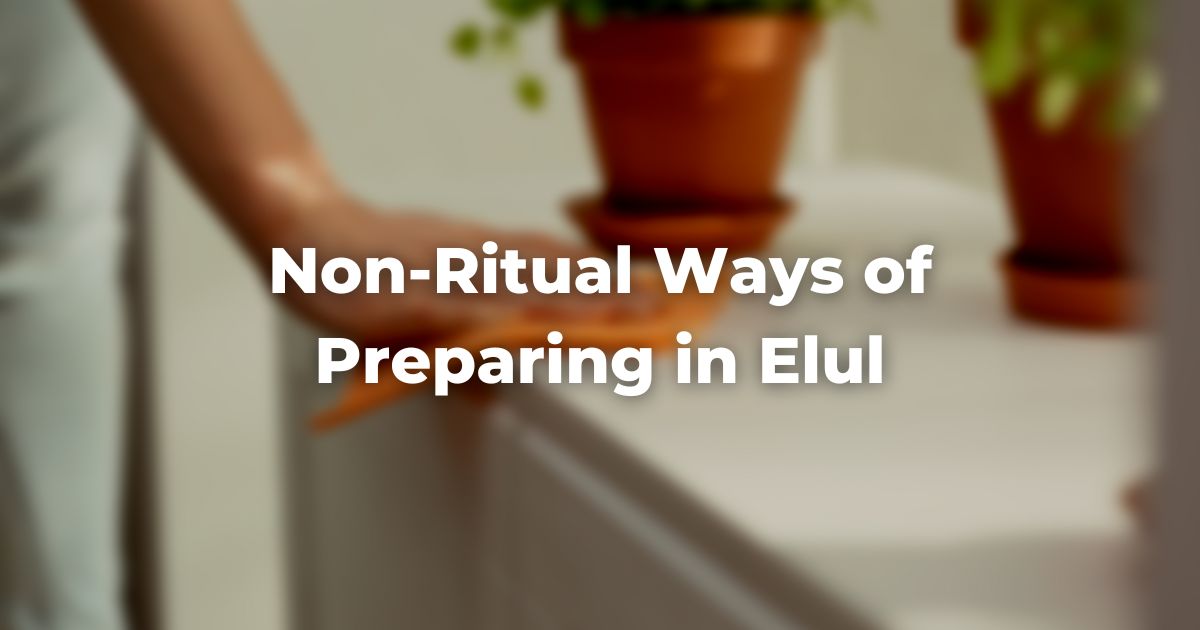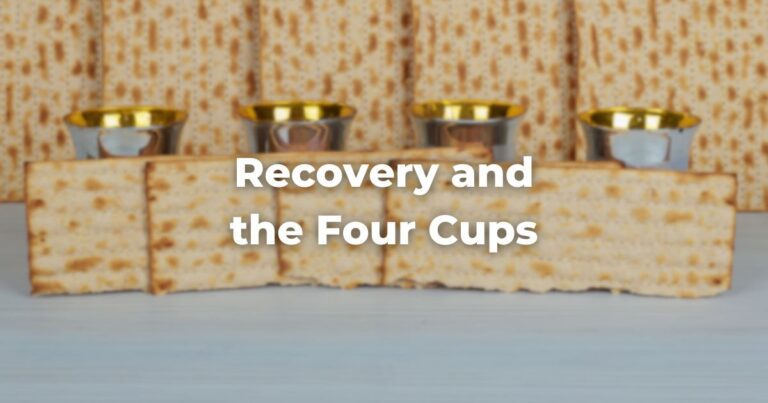Preparation at home
We also prepare for the coming of the High Holidays at home. Just as with Shabbat, there is an increase in the tempo of the household routine as everything is cleaned, polished, and made ready for the holidays.
Friends and relations begin to arrive, sometimes from great distances. Indeed, no matter how far a sibling, child, or cousin may have wandered during the course of the year, Rosh Hashanah is a time for all Jewish people to come home to their families, their people, and their God.
New Year’s Cards
Many have adopted the custom of sending New Year’s cards to family and friends wishing them well as the new year is about to begin. While it is tempting to dismiss this as an example of crass commercial opportunism on the part of the greeting card industry, the truth is that this practice is well grounded in Jewish custom (see, e.g., the gloss of the Rema to SA Orach Chayyim 582:9).
Originally, the concept was simply to wish others that they be inscribed in the Book of Life for the year to come, but sending out cards has become less theologically charged over the years and is now hardly more than an effort to reconnect with loved ones near and far. Even so, sending out Rosh Hashanah cards as a way to strengthen the bonds we share with our friends and family is a commendable endeavor.
Giving Tzedakah
Another commendable and widespread custom is the practice of making charitable contributions in anticipation of the High Holidays (gloss of the Rema to SA Orach Chayyim 581:4). Giving charity is a mitzvah all year round, but there is something especially beautiful about making a special effort around the High Holidays to help others.
As we strive to be our best selves, the giving of charity emphasizes that self-inspection and thoughtful introspection must lead to outward improvement. A person wrapped up in oneself makes for a small package.
Participation in synagogue charity appeals, on the other hand, constitutes a tangible expression of one’s determination to translate good intentions into the kind of good deeds that can transform and improve the world.
Visiting the Dead
There is also the touching custom of visiting the graves of loved ones in anticipation of the New Year. Some do this the day before Rosh Hashanah (cf. the gloss of the Rema to SA Orach Chayyim 581:4), but many go at any convenient time throughout this period from Elul through Yom Kippur.
Many synagogues hold communal memorial services at their congregational cemetery during this time of the year. At these services, there is usually an opportunity for shared communal prayers as well as private time for individuals to visit their family members’ graves.
Visiting the graves of one’s parents and grandparents helps establish a sense of continuity between the sacred past and the unborn future and fosters a sense of oneself as the vital link between the two.
Tradition also imagines our late relations, and especially our parents, as intercessors capable of pleading our case and cause before God.
It is therefore appropriate that we do not take them for granted, and this custom of visiting their graves reflects that hope.
Adapted with permission from The Observant Life.
Authors
-

-

The Observant Life: The Wisdom of Conservative Judaism for Contemporary Jews distills a century of thoughtful inquiry into the most profound of all Jewish questions: how to suffuse life with timeless values, how to remain loyal to the covenant that binds the Jewish people and the God of Israel, and how to embrace the law while retaining an abiding sense of fidelity to one’s own moral path in life. Written in a multiplicity of voices inspired by a common vision, the authors of The Observant Life explain what it means in the ultimate sense to live a Jewish life, and to live it honestly, morally, and purposefully. The work is a comprehensive guide to life in the 21st Century. Chapters on Jewish rituals including prayer, holiday, life cycle events and Jewish ethics such as citizenship, slander, taxes, wills, the courts, the work place and so much more.
View all posts






